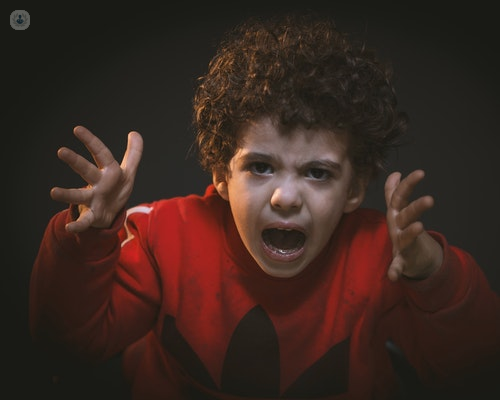Epilepsy in children: Part two
Escrito por:Following on from part one of this article, where consultant paediatrician Dr Basheer Peer-Mohamed described causes, symptoms and different types of epilepsy in children, here in this second and final part he outlines diagnosis, treatment and things to avoid.

How is epilepsy diagnosed?
Diagnosing epilepsy starts with a thorough clinical assessment including understanding clearly what happened before, during and after a seizure. If a video recording was made of the seizure when it happened. that would be immensely helpful, but this is not always possible as understandably, parents and carers would be too worried and trying to help the child and may not have additional help to capture a video recording.
Further assessment with a detailed background medical, developmental and family history followed by clinical examination, in particular, of the heart and neurological function will be undertaken. This will help exclude non-epileptic causes for seizures such as fainting or a problem with the heart and other problems in young children that can resemble a seizure. Sometimes tic disorders, which are involuntary movements of the head, neck and limbs, can be difficult to differentiate from certain types of seizures. It is possible to make the diagnosis following the clinical assessment, but depending upon the type of the seizure, there might be a need for diagnostic tests. Such tests may include:
- EEG, which is a non-invasive study of electrical activity in the brain
- ECG for heart rhythm abnormalities
- MRI scan of the brain
- Blood tests in order to determine the type of epilepsy
Is epilepsy treatable?
Yes, absolutely. The vast majority of children get better with treatment and do not have recurrence of the epilepsy when treatment is stopped after a certain period of time. Treatment is in the form of taking a medicine such as tablets, capsules or liquid on a daily basis, usually for a period of two years or until the seizures are well controlled. The treatment can then be gradually discontinued while keeping a watchful eye out for any recurrence. Some rare types of seizures in children are not controlled easily and will need additional treatments with more medications and other forms of treatment such as surgery.
Is there anything a child with epilepsy should avoid?
With the right treatment for the epilepsy, parents should be able to get their children’s seizures under control quite quickly. This will allow the child to carry on with their daily routine without too many restrictions so that they can carry on developing normally and progress with their schoolwork. However, it is generally a good idea to avoid poor sleep, skipping meals, undue physical exertion, stress and anxiety, irregular sleep routine and excessive amounts of caffeine. Not spending too much time in front of closely held electronic screens is also helpful as all these factors can increase the likelihood of having a seizure.
Some children have photosensitive epilepsy which means flickering screens and lights could trigger a seizure and so it would be best to avoid such situations. Because of the loss or impairment of consciousness associated with many seizure types, it would be important to be aware of the risk of drowning in baths and swimming pools and other potentially dangerous situations such as from motor vehicles, hot surfaces, heights etc and to put safety measures in place.
If you think your child may require expert paediatric care, you might want to visit a specialist. Visit Dr Peer-Mohamed's Top Doctors profile to request an appointment with him.


